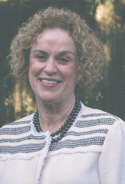AHP Connect Member Profile - Sharon A. Jones
Allana Schwaab
Published: 10/10/2018
 Sharon A. Jones, FAHP, CFRE
Sharon A. Jones, FAHP, CFRE
VP, Development
Haven Hospice
Gainesville, FL
AHP member since 1992
Sharon Jones started her career in health care fundraising in 1991. She is Vice President for Development at Haven Hospice in Gainesville, Florida. Haven provides Advance Care Planning, Palliative Care consultations as well as hospice services to adults and children in 18 counties in Northeast Florida.
Sharon serves on the Board of Directors of the Association of Healthcare Philanthropy and has been a faculty member of the Madison Institute since 2012. She became the chair of the Institute in 2014 and continues to serve in that capacity. She serves on the AHP Task Force for Certification/Fellows and has frequently presented at the National Hospice and Palliative Care Organization annual conferences.
How did you get started in health care fundraising?
In 1992, I started as the charitable foundation director for Munroe Regional Medical Center in Ocala. Fourteen years later, I started in hospice fundraising in Tampa, which was an incredible and rewarding experience. Twelve-and-a-half years later, I am happily at Haven Hospice and expanding my enjoyment for fundraising to the hospice mission.
Congratulations on being named this year’s Si Seymour Award Recipient! What does this honor mean to you?
A challenging question. To me, this is the highest honor any AHP member can receive. It recognizes service to AHP and its mission and service advancing the profession. In my wildest dreams I never considered I could be a recipient. Everything I have done – which is recognized by this award – has been a pleasure.
As the chair of the Madison Institute, you have a lot to do with the Madison experience every year. How do you think this year’s Madison experience went? What are your hopes/plans for next year?
The Madison Institute is the crown jewel of AHP. Being Chair is a labor of love, and it is an honor to serve. The faculty is extraordinary. More than ever before, the students are engaged with each individual faculty member. A faculty member may exercise with a student at 6:00 in the morning, have breakfast with another student, teach his or her class in the morning, have lunch with another student and, in the evening, have conversation with students over dinner. The Madison Experience in 2018 was outstanding.
The students always make recommendations for improvement for the next year, and we really listen and try to incorporate whatever suggestions they give us. In fact, several of the faculty members have mentioned that they thought there was more interaction this year than in previous years. Every year, Madison is different. Even though the schedule is the same, the students make it different, because of what their interests are, what their level of knowledge is and what they want it to be.
What do you think caused this increased student participation this year?
The students are eager to learn and to have one on one time with faculty members. Most of the students are relatively new to the profession and they recognize how rare it is to have one-on-one time with faculty members who have been in the profession 20 to 30 years. The students recognize that the faculty have wisdom and experience that is important to the future of each student in the profession. The knowledge the students gain benefits the institutes where they work and the communities where they live.
Shifting to your work at Be Your Haven, what campaigns or projects are you currently focused on?
A major new project for Haven is developing women’s giving circles in all of the Haven communities. An equally important new project is an employee giving campaign that we will initiate before the end of 2018. Unique to fundraising and to the hospice mission is the bond between hospice and the family of patients who have the hospice experience. This is especially true working with women who have had a hospice experience.
In your work, what are some of the biggest challenges you face and how do you overcome those challenges?
One of the biggest challenges is remembering that a prospect/donor may not fully understand the mission and purpose of hospice. Many fear they will be talking about death and illness as opposed to the reward of helping patients and families prepare for the end of life in a compassionate way. An equally great challenge is carefully listening to patients and families of patients when they describe the hospice experience. I overcome these challenges by remembering the satisfaction I feel from having heard so many personal experiences from the patient and the family.
For someone who is just getting started in their health care development career, what is the one piece of advice you would give them?
Do not be afraid to make a mistake. Always remember that not every prospect can be converted to a donor to your mission. Always remember donors do not contribute to need but to the advancement of a mission they understand and have experienced.
Is there anything else you would like to add?
Equal to receipt of the Si Seymour Award, the opportunity to be serving on the AHP Board is an honor. The experience I have gained from working with the AHP staff and other board members enhances my work every day. I believe I bring to the board the perspective of a small fundraising shop in a relatively small community with limited corporate sponsorship opportunities. There are many similar members of AHP and it is important the board and the AHP staff have an understanding of the needs and the challenges that small shops face that, generally, the large systems do not.